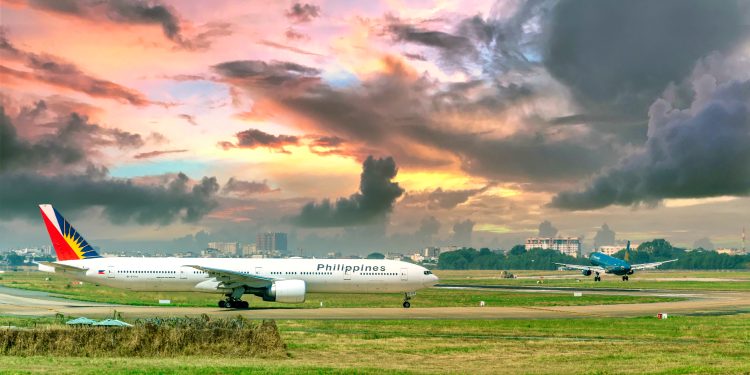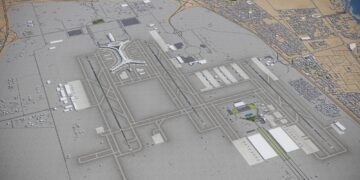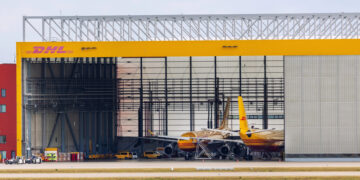In a landmark development, Saudi Arabia has successfully carried out its inaugural test of an air taxi in Mecca, heralding a major transformation in the journey of the millions of pilgrims during Hajj in the forthcoming years. This trailblazing endeavor was orchestrated by the General Authority of Civil Aviation (GACA).
The collaborative effort included the Ministry of Transport and Logistics Services, the Ministry of Hajj, the Ministry of Interior, and Front End, utilizing the EH216-S autonomous eVTOL aircraft within a secure airspace zone.
Heightened Accessibility and Congestion Mitigation
The trial, executed in an area of minimal risk, is poised to reshape the Hajj experience by amplifying accessibility, curbing congestion, and fostering sustainable practices.
Saleh Al-Jasser, the Minister of Transport and Logistics Services, underscored the trial’s crucial role.
“This groundbreaking trial marks an essential leap towards a swifter, more efficient, and eco-friendly Hajj journey. Saudi Arabia is adopting cutting-edge technology to endow pilgrims with an impeccable and sustainable pilgrimage,” Al-Jasser elaborated.
A Vision of Sustainable Air Transportation
The successful trial furnishes vital insights that will inform the development of GACA’s Advanced Air Mobility (AAM) Roadmap. This includes establishing a comprehensive regulatory infrastructure to ensure the security and ecological integrity of air transport solutions for Hajj pilgrims.
Anticipated to substantially diminish travel and delivery durations, air taxis promise to enhance emergency medical services and overall movement of pilgrims and supplies during Hajj.
By the year 2030, AAM initiatives are projected to accommodate tens of thousands of pilgrims and generate considerable financial returns.
Abdulaziz Al-Duailej, the President of GACA, emphasized the trial’s significance.
“GACA is dedicated to fostering new, secure, and sustainable forms of aerial transportation, enhancing the travel experience for pilgrims and passengers across Saudi Arabia. The trial stands as a testament to the potential of diverse applications and is a step forward in the advancement of mobility solutions within the Kingdom,” stated Al-Duailej.
Saudi Arabia has made significant investments in AAM technologies, with the goal of establishing the Kingdom as the preeminent aviation hub in the Middle East by 2030. The Saudi Aviation Strategy is poised to catalyze over $100 billion in investments, with passenger traffic swelling by 26% in 2023 to reach 112 million.









